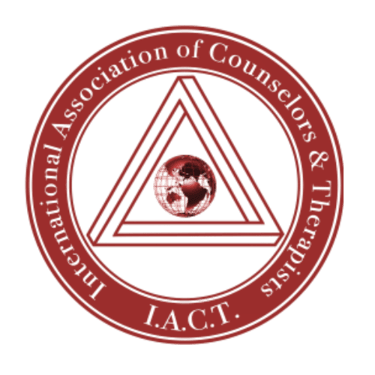
5 Rare Sexual Disorders You’ve Probably Never Heard Of (But Should Know About)
Let’s talk about sex, but not in the way you think. When most people hear “sexual disorder,” their minds jump to sexually transmitted diseases or something that sounds clinical and uncomfortable but sexual disorders aren’t about infection or morality. They’re about how our minds and bodies experience desire, arousal, and pleasure.
These conditions are rarely discussed yet they affect many people. Let’s lift the taboo and learn about five lesser-known sexual disorders that might just help you understand your body (or someone else’s) a little better.
1. Hypoactive Sexual Desire Disorder (HSDD)
Let’s start with something many people can relate to: low sexual desire.
Everyone has highs and lows in their libido, depending on stress, hormones, or life changes but Hypoactive Sexual Desire Disorder (HSDD) is when that lack of interest is persistent and causes emotional distress or relationship strain.
People with HSDD don’t just feel “meh” about sex once in a while, it’s a consistent disinterest that feels out of sync with their partner’s needs or their own sense of normalcy. Interestingly, research suggests that around 10% of women and 8% of men experience some form of HSDD (Caruso et al., 2020, Frontiers in Endocrinology).
What causes it?
Hormonal changes (e.g., menopause, testosterone imbalance)
Relationship conflict or unaddressed resentment
Past trauma or psychological stress
Certain medications like antidepressants
The good news is, it is treatable. Talking to a healthcare professional can help determine whether counseling, hormone therapy, or lifestyle changes might help reignite desire.
2. Post-Orgasmic Illness Syndrome (POIS)
Here’s one that sounds like science fiction: Post-Orgasmic Illness Syndrome (POIS).
This rare autoimmune condition primarily affects people who produce semen. After ejaculation, they experience flu-like symptoms like fatigue, fever, congestion, body aches that can last for days. Imagine catching the flu every time you have sex. That’s what POIS feels like.
Researchers believe the body mistakenly reacts to its own semen as a threat, triggering an inflammatory immune response (Waldinger et al., 2011, Journal of Sexual Medicine). There’s no known cure, but management may include avoiding triggers, antihistamines, or other doctor-approved treatments that reduce the immune response.
Though it's rare, but it is real and it is affecting many males. Recognizing it does matter, especially for those who’ve been suffering in silence or misdiagnosed.
3. Sexual Aversion Disorder (SAD)
If Hypoactive Sexual Desire Disorder (HSDD) is a lack of interest, Sexual Aversion Disorder (SAD) is fear. People with SAD feel strong disgust or even panic at the thought of sexual activity. They may actively avoid intimacy, like kissing or touching because their body associates sex with anxiety or danger.
SAD can stem from:
Past sexual trauma
Deep-seated guilt or religious conditioning
Negative first experiences
Relationship issues or body shame
It’s not just about “not being in the mood.” It’s an instinctive, emotional rejection that can deeply affect relationships and self-esteem. Treatment often includes trauma-informed therapy, gradual exposure, and rebuilding safety in the body.
Fear of sex isn’t a personality flaw, it’s a nervous system response trying to protect you from perceived harm.
4. Coital Cephalalgia (Sex-Induced Headaches)
What is supposed to follow an orgasm? Bliss, warmth, and maybe a good nap. What’s not supposed to follow? A blinding migraine.
Coital Cephalalgia, or sex-induced headaches is a sudden, throbbing pain that occurs right before or after orgasm. It’s caused by the spike in blood pressure and muscle tension during climax, tightening blood vessels in the head and neck (Frese et al., 2003, Cephalalgia).
Though it sounds alarming, it’s usually harmless and can often be managed with standard migraine medication or relaxation techniques. Think of it as your body’s dramatic way of saying, “Too much excitement at once!”
5. Retrograde Ejaculation
Finally, Retrograde Ejaculation. Thought its name sounds like a sci-fi problem, it's more of a quirky plumbing issue.
In a healthy ejaculation, the bladder sphincter closes to keep semen moving outward. In retrograde ejaculation, that muscle doesn’t close properly so semen flows backward into the bladder.
It’s not dangerous and it doesn’t affect pleasure but it can cause fertility issues.
This condition can result from diabetes, prostate surgery, or certain medications (Cleveland Clinic).
Why Talking About This Matters
Sex is one of the most natural things in the world and yet, we talk about it the least. The shame around sexual health keeps too many people from asking questions or seeking help. Knowing what’s normal, what’s not, and what’s treatable can completely change how you relate to your body.
If something feels off, don’t brush it aside. Talk to a professional who can help you understand what’s really going on. Knowledge doesn’t just heal, it empowers.
References
Caruso, S. et al. (2020). Hypoactive Sexual Desire Disorder: An Update on Diagnosis and Treatment. Frontiers in Endocrinology.
Waldinger, M. D. et al. (2011). Postorgasmic Illness Syndrome (POIS): Clinical Characteristics, Hypotheses, and Treatment. Journal of Sexual Medicine.
Frese, A. et al. (2003). Headache Associated with Sexual Activity: Epidemiology and Pathophysiology. Cephalalgia.

Get in touch
contact@annachin.co
© 2025. All rights reserved.
Therapy and coaching are not intended to diagnose, treat, or replace medical or psychiatric care. Clients are advised to consult and follow their licensed healthcare provider’s instructions.







